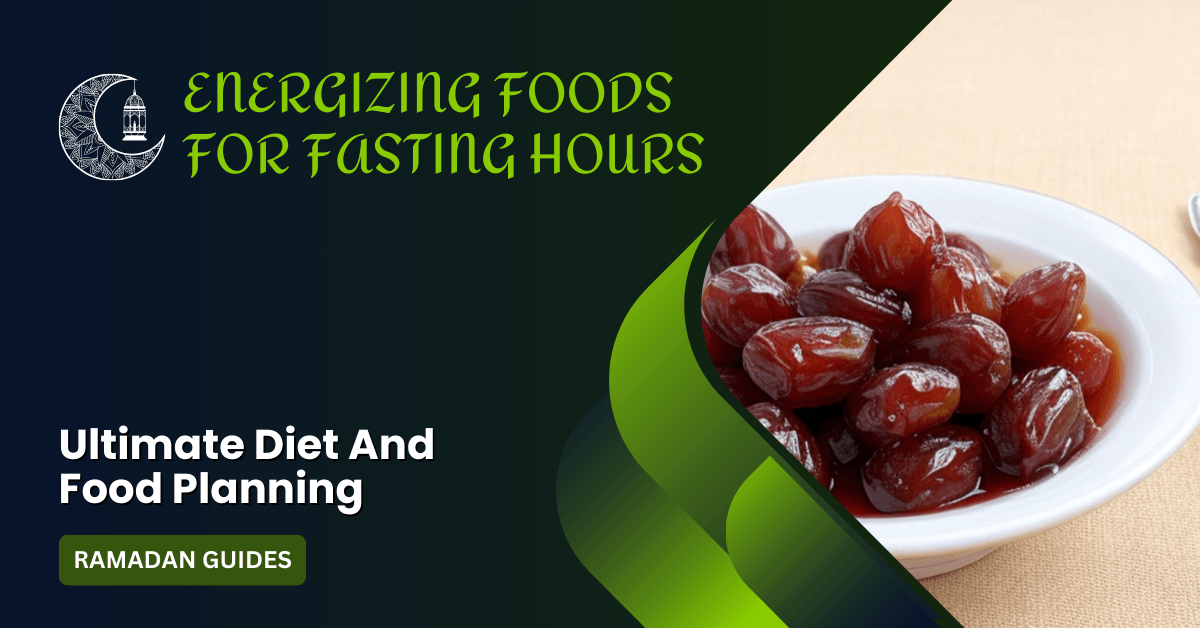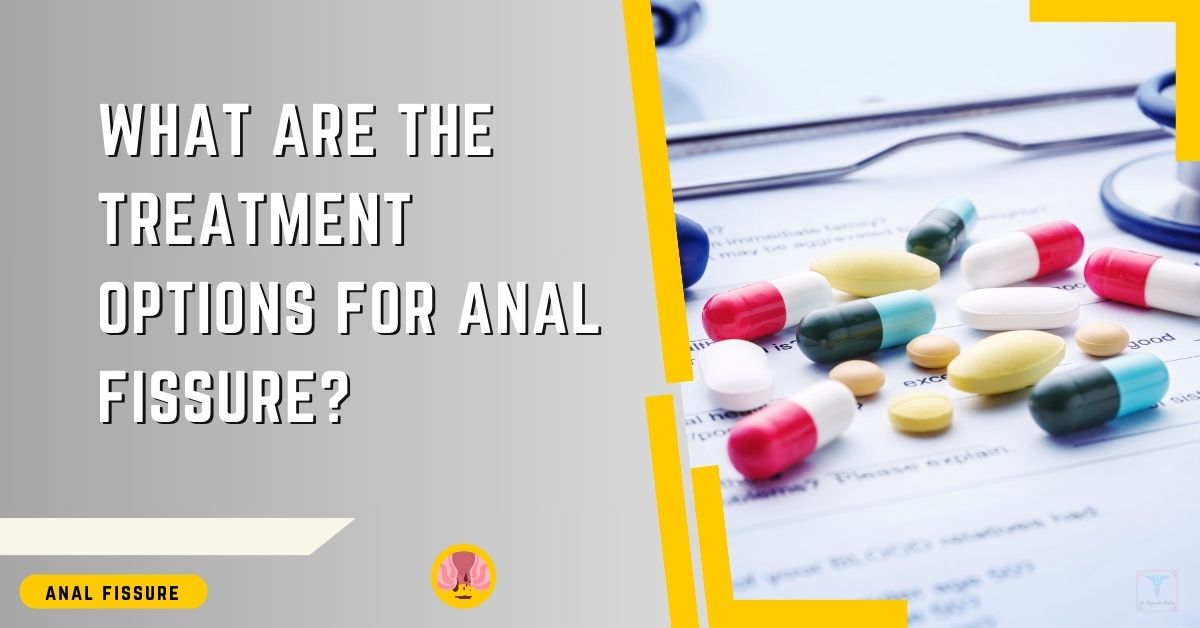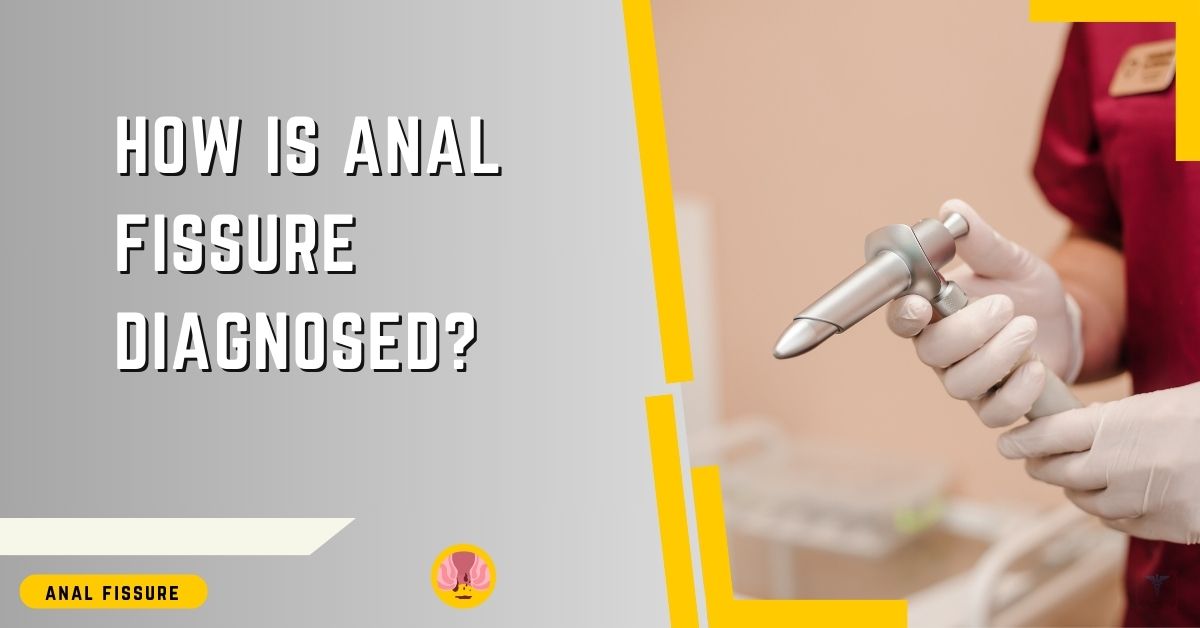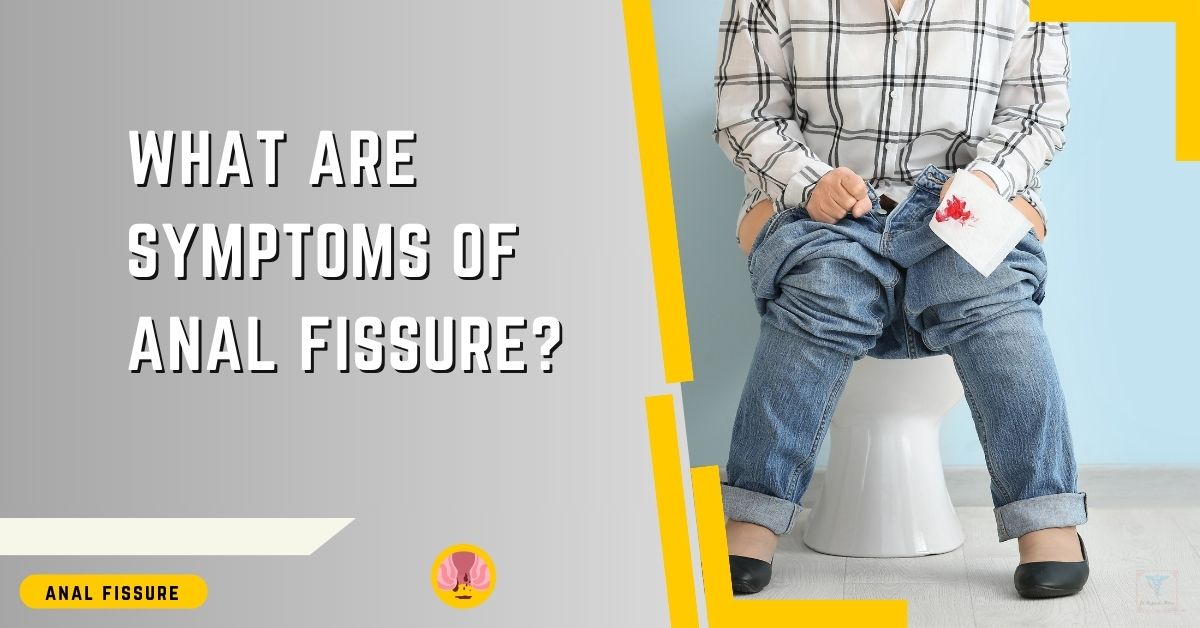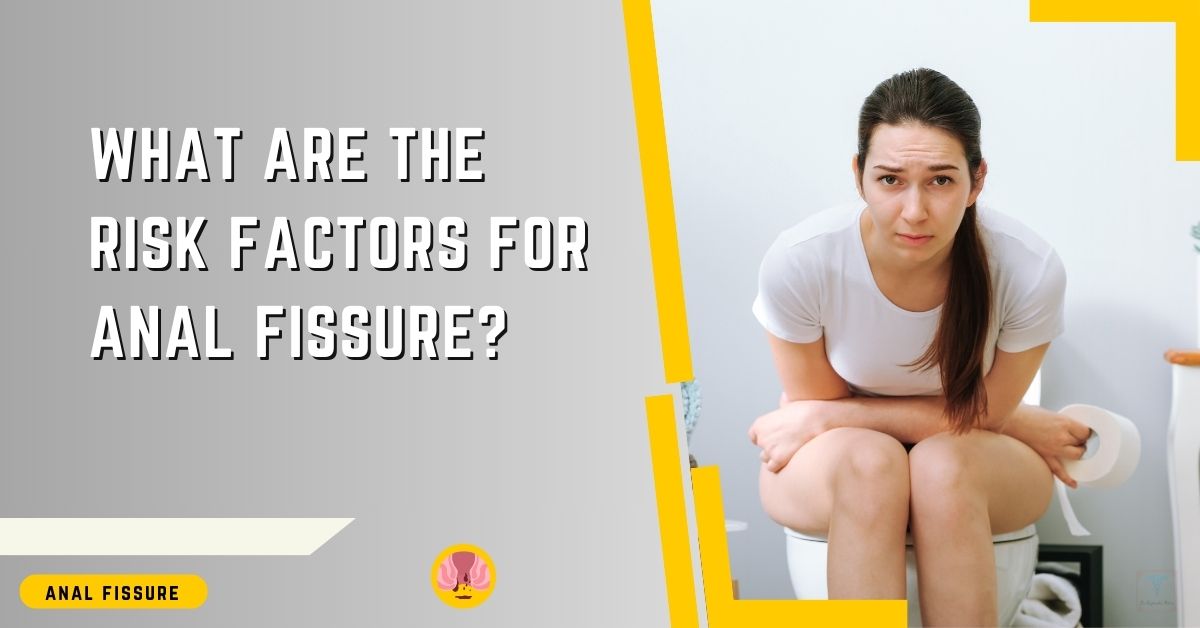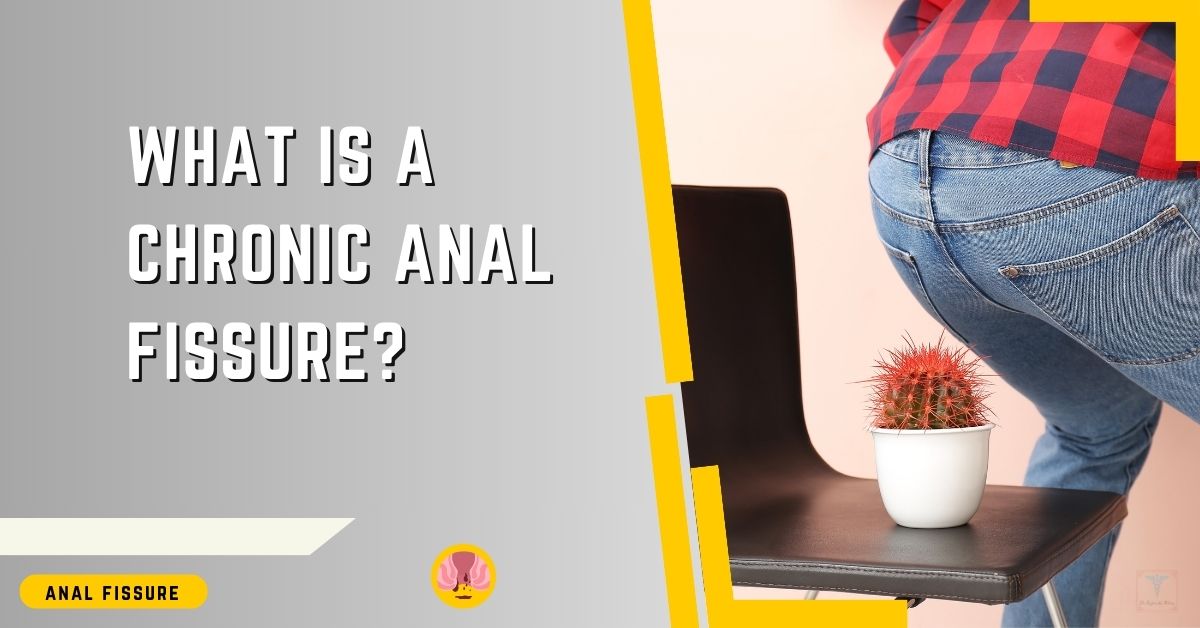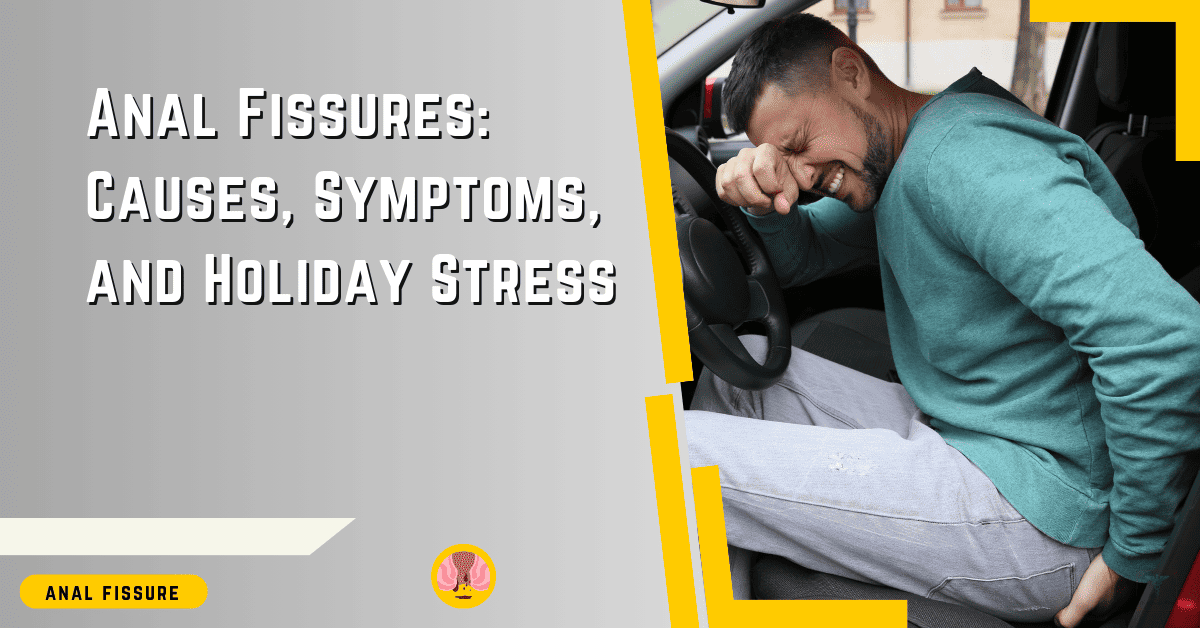During the holy month of Ramadan, maintaining your health while fulfilling your fasting obligations can present unique challenges. Anal fissures during Ramadan can cause serious trouble in your spiritual journey this holy month.
Managing anal fissures requires careful attention to ensure both spiritual practices and personal well-being are harmoniously balanced.
My guide aims to help you through understanding how to effectively manage and treat anal fissures without compromising your fasting during Ramadan. By integrating proper care strategies into your daily routine, you can navigate this sensitive issue with confidence and ease.
Anal Fissures During Ramadan: Quick Care Tips
- Recognize the importance of understanding the symptoms and causes of anal fissures to seek timely and appropriate treatment, especially during the fasting period of Ramadan.
- Emphasize a high-fiber diet and adequate hydration outside fasting hours to prevent constipation, a key factor in managing and healing anal fissures.
- Explore natural remedies and nonsurgical treatments as first-line options for managing chronic anal fissures, considering their minimal side effects and non-invasiveness.
- Consult healthcare professionals for personalized advice on balancing fasting with anal fissure treatment, ensuring religious practices do not hinder health.
- Prepare thoroughly for medical appointments by documenting symptoms, dietary habits, and any previous treatments to facilitate an accurate diagnosis and effective treatment plan.
- Understand that while fasting during Ramadan is a significant spiritual practice, health conditions like anal fissures may necessitate adjustments, under guidance, to observe fasts safely.

Understanding Anal Fissures
What Are Anal Fissures?
Anal fissures are small tears in the anus’s lining. These tears can cause significant discomfort, especially during bowel movements. You might notice bleeding or pain, which are common symptoms.
Fissures often result from straining during bowel movements or passing hard stools. The pain and bleeding from these fissures can make daily activities uncomfortable.
Managing Symptoms
To manage the discomfort caused by anal fissures, consider adjusting your diet to include more fiber. This helps soften stools and makes them easier to pass without straining.
- Drink plenty of fluids.
- Eat fruits, vegetables, and whole grains.
Applying over-the-counter creams can also provide relief from pain and itching. Remember to keep the area clean and dry.
Seeking Treatment
If your symptoms persist for weeks, it could indicate a chronic condition that requires medical intervention. Don’t hesitate to seek help from a healthcare professional if you experience ongoing discomfort or bleeding.
Medical treatments may include prescription creams or even surgery in severe cases. Your doctor will guide you through the best options based on your specific needs.
Symptoms and Sensations of Anal Fissures
Sharp Pain
You might feel sharp pain during, and especially after, bowel movements. This is a key symptom of anal fissures. The pain can be severe, making it hard to sit or walk comfortably.
Dry stools often cause this pain. Drinking more water helps soften stools, reducing pain.
Bleeding
Seeing blood on toilet paper or in your stool is common with anal fissures. Don’t ignore this sign. It’s different from the darker blood linked with other conditions.
If you notice blood, it’s time to consult a doctor for proper diagnosis and treatment options.
Itchy Sensation
An itchy or burning sensation around the anus is another symptom you may experience. This discomfort can persist throughout the day, not just during bowel movements. To alleviate itching:
- Keep the area clean.
- Avoid using scented soaps which can irritate sensitive skin.
Remember, these symptoms don’t always mean you have an anal fissure. But they are indicators that something isn’t right. Consulting healthcare professionals ensures that you receive accurate diagnosis and appropriate care.
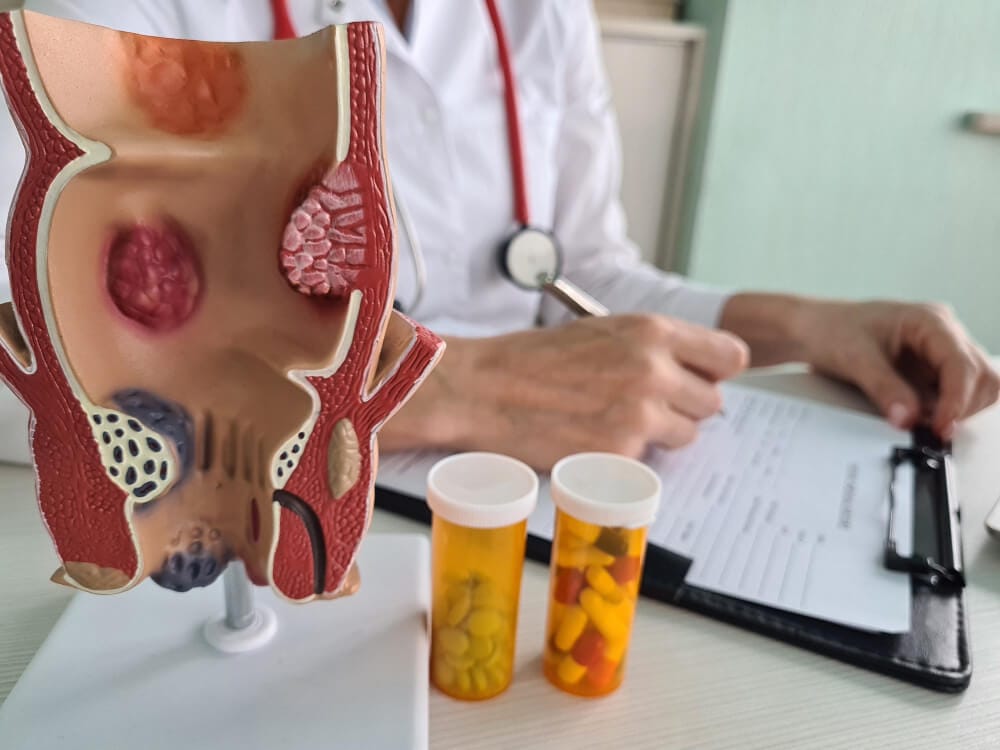
Causes and Contributing Conditions of Anal Fissures
Bowel Movements
Straining during bowel movements is a major cause. This often results from constipation. Constipation makes stools hard and difficult to pass. It puts pressure on the anal region, leading to fissures.
To avoid this, eat fiber-rich foods and drink plenty of water. These help soften stools and promote easier bowel movements.
Inflammatory Conditions
Diarrhea and inflammatory conditions also increase risk. They irritate the anal lining, making it more susceptible to tears.
Avoiding spicy foods can help reduce diarrhea episodes. Also, seek treatment for any underlying inflammatory conditions early.
Childbirth Trauma
Childbirth trauma is common in women. The intense pressure during delivery can cause fissures.
Kegel exercises strengthen pelvic floor muscles. This may reduce the risk of trauma-related fissures post-delivery.
Diet Tips to Promote Healing of Anal Fissures
Fiber Intake
Increasing your fiber intake is crucial. It softens stools, making them easier to pass. This reduces strain during bowel movements, a key factor in healing anal fissures.
Eat more fruits, vegetables, and whole grains. These foods are high in fiber. Aim for 25 to 30 grams of fiber daily.
Drink plenty of water as well. Hydration works hand-in-hand with fiber to soften stools further.
Avoid Irritants
Certain foods can irritate an existing fissure. Spicy foods are a major culprit.
Avoid chili peppers and hot sauces. Also steer clear from acidic foods like tomatoes and citrus fruits.
Focus on eating bland, soothing meals that won’t aggravate your condition.
Stay Hydrated
Hydration is vital for preventing constipation during Ramadan. Constipation can worsen anal fissures due to hard stools.
Aim for eight glasses of water daily outside fasting hours. Consider including hydrating foods like cucumbers and watermelon in your Suhoor (pre-dawn meal) or Iftar (meal after sunset).
Remember not to drink too quickly after breaking your fast as it might cause discomfort.
Natural Remedies for Chronic Anal Fissures
Coconut Oil
Coconut oil is a good source of natural healing properties. Applying it can help your skin recover faster. It’s easy to use, too.
Just dab a small amount on the affected area regularly. This method works well alongside diet improvements mentioned earlier. Many find relief and faster healing with this simple remedy.
Sitz Baths
Sitz baths are highly effective for soothing and reducing inflammation caused by anal fissures. They’re simple to prepare at home.
Fill a tub with warm water and sit in it for 15-20 minutes daily. Doing so after bowel movements can be particularly helpful. This practice promotes blood flow and helps in pain management.
Aloe Vera Gel
Aloe vera gel is known for its healing and discomfort-relieving properties. Applying it directly to the fissure can accelerate the healing process.
For best results, use pure aloe vera gel twice daily. Its cooling effect also provides immediate relief from pain and itching.
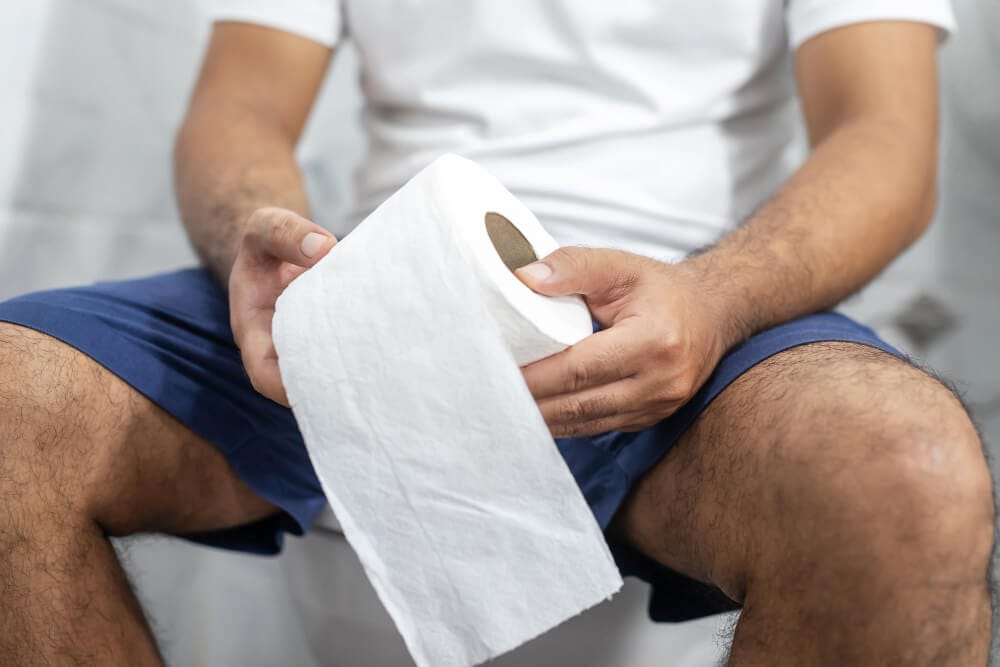
Nonsurgical and Surgical Treatments for Anal Fissures
Topical Creams
Topical creams can offer relief. They work by relaxing the muscles around your anus. This reduces pain and aids in healing. Nitroglycerin is a common choice.
You apply these creams directly to the affected area. They might cause headaches in some people, but they are effective for many.
Botox Injections
Botox injections are another option. They help by temporarily paralyzing anal muscles. This relaxation promotes wound healing.
The procedure is quick and done in a doctor’s office. The effects last several months, giving fissures time to heal.
Surgery Option
Surgery becomes an option when other treatments fail. It’s considered a last resort due to its invasive nature.
The surgery involves cutting part of the anal muscle. This helps reduce muscle spasms and allows the fissure to heal.
Balancing Fasting with Anal Fissure Treatment During Ramadan
High-Fiber Diet For Suhoor
To manage anal fissures during Ramadan, planning your suhoor is crucial. A high-fiber meal can help prevent constipation, a common trigger for anal fissures.
Foods like whole grains, fruits, and vegetables are excellent choices. They soften the stool and make bowel movements easier. Avoiding refined sugars and flours is also wise as they can lead to harder stools.
Stay Hydrated
Drinking plenty of water between iftar and suhoor keeps you hydrated. This practice helps in softening the stool too.
It’s important to consume water gradually throughout the night. Aim for at least 8 glasses before starting your fast again. Avoid caffeinated drinks as they can dehydrate you.
Medication Timing
Consulting a doctor about medication timing while fasting is key. They can adjust dosages or suggest alternatives that fit your fasting schedule.
For example, topical treatments for anal fissures might be recommended for use during non-fasting hours. Always follow professional advice to ensure effective treatment without breaking your fast.
Preparing for Your Medical Appointment Regarding Anal Fissures
Symptom Diary
Keep a symptom diary. Note your diet, bowel habits, and pain level daily. This helps your doctor understand your condition better.
In your diary, mention any instances of hard stools or constipation. These can worsen anal fissures. Also note how fasting during Ramadan affects these symptoms.
Discuss Fasting
Be ready to talk about fasting. Explain how you manage food and fluid intake during Ramadan.
Discuss any concerns related to fasting and its impact on anal fissures with your health care provider. They might suggest lifestyle changes that can help balance religious practices with health needs.
Medication List
List all medications you’re taking. Include over-the-counter drugs too.
Your doctor needs this information to avoid prescribing treatments that could interact negatively with what you’re already taking.
Final Note From Dr. Rajarshi Mitra
Navigating the challenges of anal fissures during Ramadan requires a delicate balance between fulfilling religious obligations and ensuring proper health care. You’ve learned about the nature of anal fissures, their symptoms, causes, and various treatment options including diet modifications, natural remedies, and medical interventions.
Importantly, the article highlighted strategies to manage these treatments while fasting, ensuring that your spiritual practice is not compromised by health concerns. It’s essential to approach this issue with informed care and sensitivity to both your physical well-being and spiritual commitments.
As you move forward, remember to consult a healthcare professional for personalized advice tailored to your specific condition and religious observance.
Your health should always be a priority, and there are compassionate ways to manage it alongside your faith. Take action by scheduling an appointment with a medical expert to discuss your options during Ramadan. Let this be a step towards healing and balance.
FAQs
Can I fast during Ramadan if I have an anal fissure?
Yes, but ensure adequate hydration at night and consume fiber-rich suhoor meals to prevent constipation that may worsen fissures.
How can diet help heal anal fissures?
A high-fiber diet helps soften stools, reducing strain during bowel movements and promoting healing of fissures.
Are there natural remedies for chronic anal fissures?
Yes, warm sitz baths and applying topical ointments like aloe vera can soothe symptoms and aid in healing.
What nonsurgical treatments are available for anal fissures?
Topical nitroglycerin or calcium channel blockers can relax sphincter muscles, improving blood flow to promote healing.
Dr. Rajarshi Mitra is a patient-centered, highly-rated Specialist Laparoscopic Surgeon & Proctologist in Abu Dhabi, offering Advanced Laparoscopic Surgery, Minimally Invasive Proctology & Lasers in Proctology. He is MBBS; MS (Surgery); FIAGES; FICS (USA); Dip. Lap (France); and Dip. Hernia (APHS) with 18 years of extensive experience in Laparoscopic Surgery, Minimally Invasive Proctology and Fellowship training in Colorectal and Bariatric Surgery.




